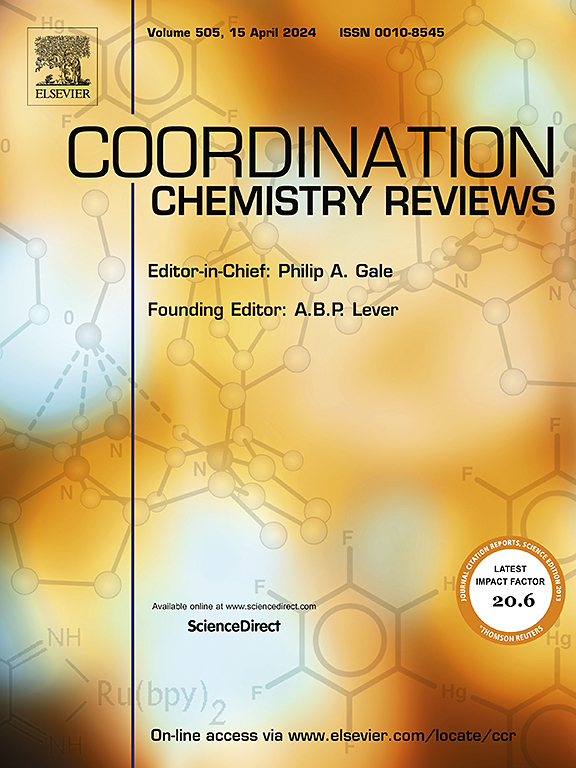Lignin-based support for metal catalysts: Synthetic strategies, performance boost, and application advances
IF 20.3
1区 化学
Q1 CHEMISTRY, INORGANIC & NUCLEAR
引用次数: 0
Abstract
Catalyst supports play a crucial role in improving the performance of metal catalysts, and there is an increasing interest in the development of catalyst supports based on sustainable materials. Lignin, as an abundant renewable aromatic polymer, is an ideal candidate for metal catalyst support due to its rich functional groups and tunable chemical properties, which can produce strong coordination which enable strong coordination with metals and their subsequent immobilization. This review addresses the research frontiers of lignin-based materials as metal catalyst supports, focusing on the versatile roles of lignin-based supports in enhancing catalyst performance. The current study status on lignin-based materials as catalyst supports for nano/atomic scale metal is presented in terms of unmodified/modified lignin, lignin/polymer composites, and lignin-based carbon materials. Then, the applications of metal catalysts supported by lignin-based materials for applications, such as wastewater treatment, biomass catalysis, and energy conversion, are summarized to highlight their potential to promote these processes. By emphasizing these advancements, the review aims to provide valuable insights into how lignin can be effectively utilized and customized to enhance its performance as a catalyst support.
基于木质素的金属催化剂:合成策略、性能提升和应用进展
催化剂支架在提高金属催化剂性能方面起着至关重要的作用,基于可持续材料的催化剂支架的开发越来越受到关注。木质素作为一种丰富的可再生芳香族聚合物,具有丰富的官能团和可调的化学性质,是金属催化剂载体的理想候选者,可与金属产生强配位,从而实现与金属的强配位和固定化。本文综述了木质素基材料作为金属催化剂载体的研究前沿,重点介绍了木质素基载体在提高催化剂性能方面的多种作用。从未改性/改性木质素、木质素/聚合物复合材料、木质素基碳材料等方面介绍了木质素基材料作为纳米/原子级金属催化剂载体的研究现状。然后,综述了木质素基材料负载的金属催化剂在废水处理、生物质催化和能量转化等方面的应用,强调了其促进这些过程的潜力。通过强调这些进展,综述旨在为如何有效利用和定制木质素以提高其作为催化剂载体的性能提供有价值的见解。
本文章由计算机程序翻译,如有差异,请以英文原文为准。
求助全文
约1分钟内获得全文
求助全文
来源期刊

Coordination Chemistry Reviews
化学-无机化学与核化学
CiteScore
34.30
自引率
5.30%
发文量
457
审稿时长
54 days
期刊介绍:
Coordination Chemistry Reviews offers rapid publication of review articles on current and significant topics in coordination chemistry, encompassing organometallic, supramolecular, theoretical, and bioinorganic chemistry. It also covers catalysis, materials chemistry, and metal-organic frameworks from a coordination chemistry perspective. Reviews summarize recent developments or discuss specific techniques, welcoming contributions from both established and emerging researchers.
The journal releases special issues on timely subjects, including those featuring contributions from specific regions or conferences. Occasional full-length book articles are also featured. Additionally, special volumes cover annual reviews of main group chemistry, transition metal group chemistry, and organometallic chemistry. These comprehensive reviews are vital resources for those engaged in coordination chemistry, further establishing Coordination Chemistry Reviews as a hub for insightful surveys in inorganic and physical inorganic chemistry.
 求助内容:
求助内容: 应助结果提醒方式:
应助结果提醒方式:


